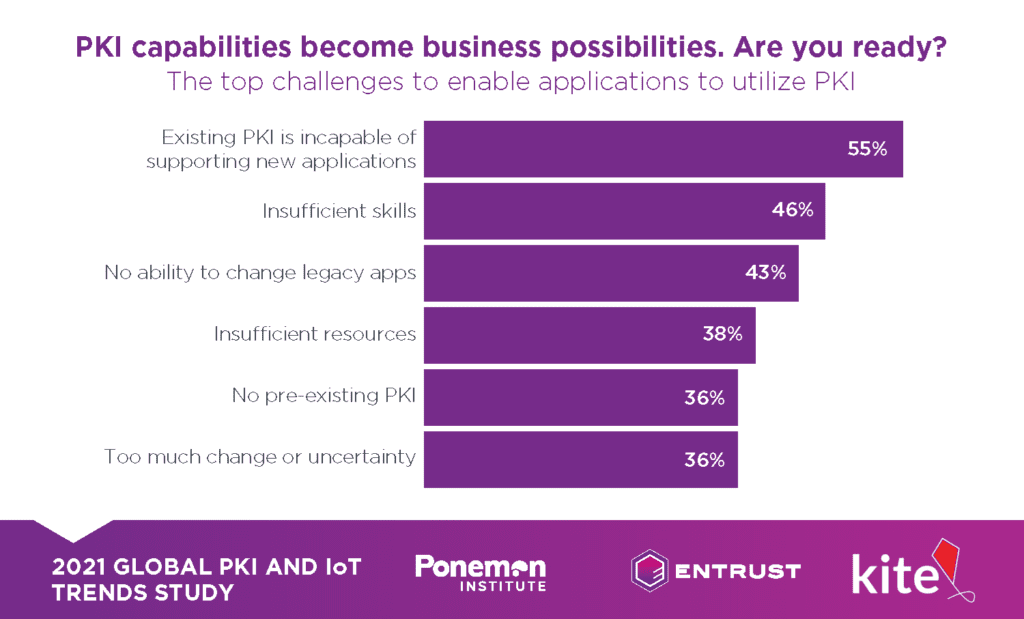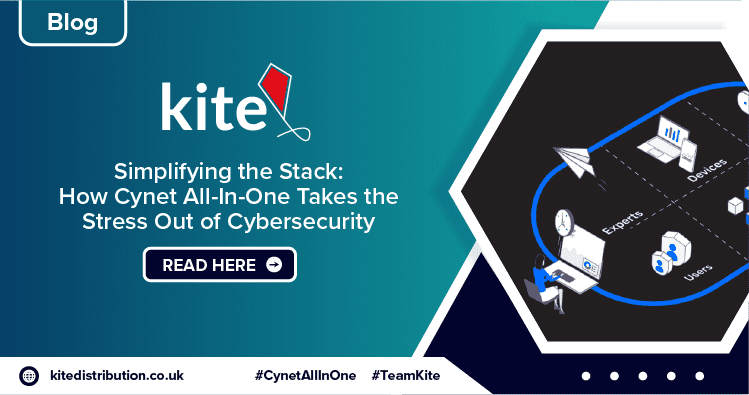The Ponemon Institute 2021 Global PKI and IoT Trends Study, sponsored by Entrust, is here. This report is based on a survey of 6,610 IT professionals involved in the management or development of their organisations’ enterprise PKI, across 17 countries and regions. So, what conclusions can be drawn from the study? What key influences and pain points were highlighted in 2021? Let’s take a closer look at the main takeaways from this report.
For the second year in a row, IoT has been identified as the main driving force behind the adoption of PKI, with 47 percent of respondents naming it the most important trend; the adoption of cloud-based services takes second place, with 44 percent of respondents identifying it as a key factor in the deployment of applications utilising PKI. The effect of these trends is clear; since 2019, the average number of PKI certificates issued by organisations has increased by 50 percent. Additionally, while 81 percent of organisations mostly use their PKI for TLS/SSL certificates for public facing services, the use of PKI credentials for securing private networks and VPN has increased to 67 percent from 60 percent in 2020. With the COVID-19 pandemic accelerating the uptake of remote and hybrid working, none of this really comes as a surprise; more devices and a wider security perimeter adds up to greater demand.

However, this increased usage comes with its own challenges. PKI adoption may be increasing, but 46 percent of respondents said that their organisation did not have the skills necessary to properly manage that PKI, with only 41 percent of organisations having a PKI specialist on staff, and 71 percent stating that their main challenge was not having clear ownership. In addition to this, 55 percent of respondents stated that their organisation’s existing PKI was incapable of supporting new applications.

This evidence all seems to point to a management issue. The unprecedented acceleration in the adoption of PKI over the last two years is a long-term benefit to organisations in security terms, but in the short-term, there is a struggle to expand and deepen the pool of expertise and resources to keep up with the increased usage. The organisations that prioritise their PKI will be best placed to overcome that challenge and will be able to take full advantage of what is possible with PKI.
Want to learn more? Download the study below:
Other recent news

SenseOn Partners With Kite Distribution to Boost UK Channel Growth in 2025

Kite & Cyberbit Forge Strategic Alliance

Simplifying the Stack

Kite & Uptycs Announce Strategic Partnership

